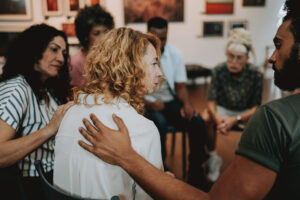Caring for a child with a rare genetic disorder can be an emotional rollercoaster for families. While much attention is rightfully focused on the child facing these challenges, the siblings often experience unique emotions and concerns. Support groups are vital in helping siblings navigate their feelings, develop coping strategies, and foster a sense of belonging. We’ll explore how support groups specifically benefit siblings of children with rare genetic disorders and why they are essential for promoting overall family well-being.
The Challenges Faced by Siblings
Siblings of children with rare genetic disorders often find themselves in a complex emotional landscape. They may experience jealousy, guilt, or sadness as they witness their siblings receiving special attention due to their condition. Additionally, siblings might struggle with confusion about their sibling’s health issues or worry about the future. This emotional burden can lead to feelings of isolation, as siblings may feel misunderstood by their peers or overwhelmed by their family’s circumstances.
Support groups designed for siblings of children with rare genetic disorders offer a safe space for these children to express their feelings and share their experiences. By connecting with others in similar situations, siblings can find validation and reassurance that their emotions are normal and understood.
Emotional Support and Validation
One of the most significant benefits of support groups is the emotional support they provide. In these groups, siblings can discuss their feelings openly, knowing they are among peers who understand their struggles. This environment fosters empathy, allowing siblings to share their joys, fears, and frustrations without fear of judgment.
Group leaders and facilitators often provide guidance and strategies to help siblings cope with their emotions. Activities such as group discussions, art therapy, and role-playing can help siblings express themselves creatively, making it easier for them to process their feelings. This emotional support is vital for building resilience and self-esteem in siblings.
Building a Sense of Community
Support groups help siblings feel like they’re part of a community. When kids meet others who have similar experiences, they can make friends who understand them and may stay friends for life. This feeling of friendship can help them feel less alone and more supported in facing their unique challenges.
Being part of a group also helps siblings learn from each other. They can share advice on how to handle tough situations, like talking to friends about their sibling’s condition or dealing with their own emotions when they feel stressed. This support from other kids is really valuable in making siblings feel less alone in what they’re going through.
Educational Opportunities
Many support groups for siblings also include educational components. These groups often host workshops and informational sessions to help siblings understand rare genetic disorders better. understanding their sibling’s condition can reduce feelings of fear and uncertainty.
These educational sessions may cover topics such as:
- Understanding Genetic Disorders: Siblings learn about the specific condition affecting their brother or sister, including symptoms, treatments, and long-term implications.
- Communication Skills: Siblings are taught how to talk to friends and family about their sibling’s disorder, promoting better understanding and reducing stigma.
- Coping Strategies: Practical strategies for dealing with emotions, advocating for their sibling, and maintaining their mental health are shared.
Encouraging Advocacy and Leadership
Support groups can empower siblings to become advocates for their brother or sister with a rare genetic disorder. By participating in discussions and activities, siblings learn about the importance of advocacy and how they can contribute to raising awareness about their sibling’s condition.
This sense of purpose can enhance their confidence and provide them with a platform to voice their concerns and experiences. Encouraging siblings to take on leadership roles within the group can also foster personal growth and a sense of accomplishment.
Support groups are invaluable resources for siblings of children with rare genetic disorders. They provide emotional support, foster a sense of community, offer educational opportunities, and empower siblings to become advocates for their loved ones. By addressing the unique challenges faced by siblings, these groups contribute to healthier family dynamics and promote overall well-being.
If you’re a sibling or a parent of a child with a rare genetic disorder, consider seeking out a support group in your location. Connecting with others who share similar experiences can make a world of difference, helping siblings thrive in their unique roles while supporting their brother or sister on their journey. Together, we can build a more inclusive community that embraces challenges and celebrates the strengths of every family member.



